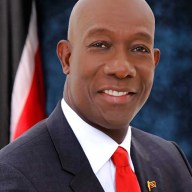When it comes to losing weight, most Americans are impatient, seeking to shed pounds as quickly as possible. But many traditional diet and exercise plans often lead to disappointment and frustration — and can even make you less healthy.
The problem may stem from the fact that basically every diet tells us we need to lose weight. But for most people, it’s more important to focus on ways to accelerate fat loss, rather than weight loss.
“Many conventional diets and popular exercise routines can actually make you fatter and more frustrated,” said Dian Griesel, co-author with her brother Tom Griesel of the new diet and fitness book “TurboCharged.” “The only thing any of us wants to lose is excess body fat, not our bones, muscle, water or other essentials. Yet, these are what typically deteriorate or are lost in most diets focused on ‘weight’ loss.”
The problem starts with how we are all told to measure success. A standard weight measuring scale gives little information. Someone can actually be very lean with a well-hydrated and muscular body, yet they may weigh in at a higher number than someone of the same height that is actually fatter. After all, muscle is denser than fat.
“Throw away your traditional scale,” said Tom Griesel. “The only relevant measurement is your body fat percentage. This can be easily calculated with a neck and waist measurement for men, and neck, waist and hip measurements for women.” Interestingly, even if you are not overweight, a waist measurement of over 33 inches, regardless of your weight, increases health risks like cardiovascular disease.
A healthy lean male should have a body fat percentage in the eight to 18 percent range, and a healthy female between 16 and 24 percent. The younger you are, the lower the acceptable healthy range. To find out your body fat percentage, enter your measurements into the free body fat calculator designed by the U.S. Navy, available at www.turbocharged.us.com.
The primary reason for excess fat is often improper diet along and a lack of activity. Stress complicates things further by triggering release of the hormone cortisol that causes the liver to produce excess sugar. The excess sugar triggers hunger, so we’re more likely to eat more when stressed and, as a result, gain more fat.
The Griesels recommend a diet consisting of fruits, vegetables, nuts, seeds, meats and fish. They also suggest you gradually increase your overall activity level. Walking is a great way to reduce fat and improve your overall health, but so is cleaning your home, chasing your kids, washing your car or gardening. Activity is activity, whether you call it exercise, running errands or having fun.
The most important thing is that you put together a plan that’s best for you — one that helps you lose fat, not muscle, while living a fuller, more active life.
Courtesy of State Point























